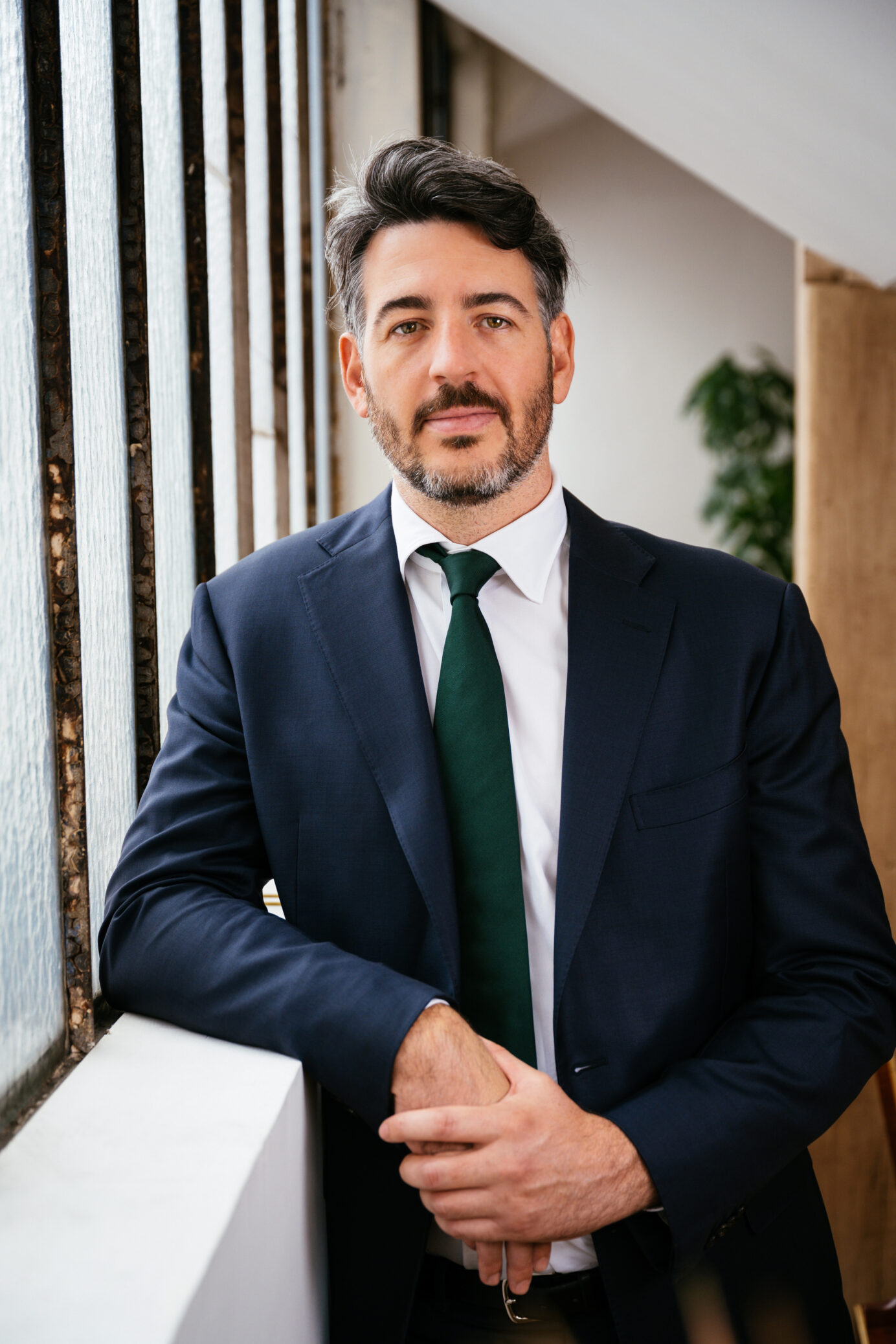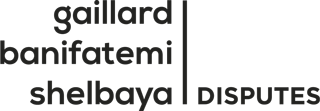James Herbert, partner-elect at Gaillard Banifatemi Shelbaya Disputes
“Here, you will never be criticized for coming up with creative ideas or creative solutions”
You were born and studied in New Zealand. The classic path for New Zealanders is to go and work in England. Why didn’t you follow that path?
My initial assumption was that I would indeed follow that well-worn path: go to London, stay there for between two and five years and then go back to New Zealand. When I decided to move to Europe, my first two offers were at Freshfields in London and Shearman in Paris. They were both leading practices that I knew would provide top-tier work and training. Apart from having Fouchard Gaillard Goldman on International Commercial Arbitration on the shelf of our library in Auckland, news of the exploits of Emmanuel and Yas had also filtered back in the form of war stories from hearings. At the time, I had spent a fair amount of time in London but only one night in Paris. I stayed in Pigalle, ate at a very good restaurant (Le Pantruche) and slept in a very bad hotel. Ultimately, I decided Paris would be more interesting and that is where I have now established my base.
Did you feel Paris was interesting because it is an important place for arbitration?
It wasn’t the main reason actually – I have always travelled a lot and come from a very international family so the main attraction of Paris was simply to live and work in a new culture. There are many important centres of international arbitration – Paris, London, Singapore, Hong Kong etc. – and I had previously worked for several years with a leading arbitrator, David Williams QC, who worked in all of these places. So from the very beginning of my career, I have always been fortunate enough to be exposed to a genuinely international practice and that has become even more the case since I began working with Emmanuel and Yas. What is important in the practice of international arbitration is to maintain an international perspective and to be receptive to new ways of thinking, especially from other legal cultures. These are among the key qualities that distinguish the best international arbitrators and counsel from the rest and, in my view, that international culture is one of the great strengths of the Paris arbitration scene when compared to other arbitration centres.
Was it this international aspect that made arbitration a good fit for you?
That and the fact that half of my family are lawyers: my dad was a lawyer and one of my sisters is a lawyer. So it is fair to say that I have always grown up in a relatively argumentative environment. It was a good thing for the family that another of my sisters, who also began studying law, ultimately rejected the idea of being a lawyer on the basis that it was immoral. I survived the moral crisis!
Does that mean you think arbitration is moral?
While there are many aspects of morality that people may struggle to reach agreement on, in my experience people tend to share similar instincts on the big issues as to what is manifestly just or unjust. One obvious example of morality at play in international arbitration is that most people, especially those whose lives are affected by corruption, would consider it unjust and immoral for an arbitral tribunal to permit a corrupt party to profit from its own corruption. There are still a few old warhorses shuffling around who take an anachronistic “eyes wide closed” view on these issues, but fortunately the debate has moved on now and it is generally accepted that international arbitration must identify and sanction corruption where it is present.
In my view, anti-corruption work is an example of an area in which international arbitration can and should lead the way. A significant portion of my work now involves asset recovery efforts where public assets have been embezzled by kleptocratic former regimes – for example, we recently had a major success in recovering a shareholding worth hundreds of millions of Euros that had been embezzled from Sonangol by the daughter of the former President, Isabel dos Santos. That process was extremely clean and efficient—to the great credit of the arbitrators involved—and led to an outcome that may not have been achieved elsewhere, including because of the evidence we obtained that was not previously available. In other words, corruption is not just an opportunistic defence, as nervous lawyers defending corruption allegations often suggest, but is often a cause of action in and of itself.
You arrived eight years ago in the same team you work with today. What was your first impression?
It was a big arbitration university. Full of very young people in their late twenties and early thirties, from all the corners of the world. We all bonded very tightly as a group, not simply because we were far flung, but also because the team has always attracted extraordinary personalities who were drawn to the environment that Yas and Emmanuel created.
What about your first case?
My first case after I moved to Paris was a warm-up that lasted for six months and then settled. Then, I became involved in a Vietnamese case on behalf of Petrovietnam. It was about oil and gas taxation with some added elements of intrigue – one of the first major disputes in which a Vietnamese State-owned entity had become involved. It was a fantastic first case: challenging from a legal perspective (especially since it was my first real exposure to civil law) and fast-moving. We had great co-counsel from YKVN in Vietnam and I have very fond memories of early morning phở breakfasts while stationed in Hanoi to interview witnesses and go over the documentary record. I had previously ridden through Vietnam on a motorbike as a 19-year-old so it was nice to go back in a professional capacity.
What did you learn the most from this case?
We were a four-person team and the case was both important and difficult so we all worked very closely. Obviously, I learned a huge amount given that it was my first time working with Yas and Emmanuel. To give one example, we interviewed a particular witness and Emmanuel told me something I have never forgotten: what you get from a witness for the first half an hour of meeting is what you will get at the hearing. He was very impressive for his ability to quickly judge the credibility of a witness. More generally, I was learning the process and the particular way we would work as a team.
Perhaps you can expand on that?
The legal process in the team is quite unique – I would say quite special. First, we always look at each case in terms of its own unique features and do not blindly apply assumptions or precedents. Second, each of us has a different background (common law and civil law from various countries etc.) and we draw on these different experiences to challenge each other’s underlying assumptions. Nothing is necessarily the same as what we have done before: we always discuss and the process is not about being reflexive, but strategic. I think the clients see that and that’s why they come back to us. One benefit is that the other side can sometimes struggle to predict you: we have taken a number of unorthodox strategies and tactics that have worked out very well.
Would you give us an example?
Of course! We had a hearing in London for which we represented a number of independent Asian power producers. We had representatives from nine clients who had flown all the way from relevant country to London. We were all there together with our co-counsel and the arbitrator, but the other side said at the last minute that they could not proceed with the hearing because they had orchestrated an injunction from their domestic courts.
The most obvious response would have been to rely on the power of the arbitrator to proceed in the absence of the defaulting party and we had prepared various arguments to that effect. However, given our confidence in our written submissions, Emmanuel ultimately decided to simply waive the right to an oral hearing so as to preserve equality of arms and make it easier for the arbitrator to proceed on the basis of the written record.
It was obviously difficult to explain to a room full of CEOs who had travelled all that distance that it was better to enter the room and say: “We understand that the other side is trying to put you in an uncomfortable position so we propose that you just read the submissions and decide on the basis of the written record to preserve equality between the parties”. It was a very big call, but Emmanuel was willing to make it and convinced the clients that this was the best way forward.
And…did it work?
It did! We got the relief that we wanted—security for claim—which is quite unusual, hard to get and which some thought would be impossible in that case. Ultimately, the other side’s unsophisticated guerrilla tactics worked against them and they were ordered to deposit the amount of our clients’ claim (not just the legal costs) in advance of the arbitrator deciding the case.
There are many other examples I can think of: we recently obtained an extremely rare anti-arbitration injunction from an arbitral tribunal on the theory that the parallel arbitration was an abuse of right; in another case, we successfully defended a very large debt claim by demonstrating that the other side’s financing arrangements (which they considered to be standard form and innocuous) had actually caused an immediate legal assignment of any causes of action to a third party. To be honest, I almost can’t think of a case where we haven’t done something unusual. It takes everyone out of their default settings, forces them to think and it is what we are actually supposed to do since arbitration is meant to be a bespoke process.
Could we call it the “GBS philosophy”?
That is certainly an important part of the team’s ethos: we never do different cases in the same way. We treat each case according to its specific circumstances and requirements without imposing formulaic approaches. Here, you will never be criticized for coming up with creative ideas or creative solutions – after all, the firm’s motto is “the art of arbitration”.
Is it not too difficult to reinvent the way you apply law every time?
I once saw an interview of someone who many think was one of the greatest lawyers of his generation, an English lawyer called Lord Sumption, who said something like, “My cases were not necessarily interesting when they came to me—I made them interesting.” In many ways, I think he is right in that there are many different approaches that can be taken to the same case. You are not going to change the facts, but you can make them legally interesting by finding the right issues and developing them. The types of cases we do at GBS Disputes always have the capacity to be very interesting. Often factually, but also legally since you have more control over the legal direction that a case takes. Most of them – because they are political, high-stakes etc. – offer us a huge range of potential issues, and we get to find the best ones and go deep on those issues.
Do you think that’s why, after eight years in France practicing arbitration, you have never grown tired of it?
Yes! My decision was right to come to Paris. Emmanuel and Yas were the brilliant mentors I was looking for when I decided to come to Paris and it has been a great privilege working in such a rich and stimulating environment.
Interview by Lisa Vignoli on March 17 2022

